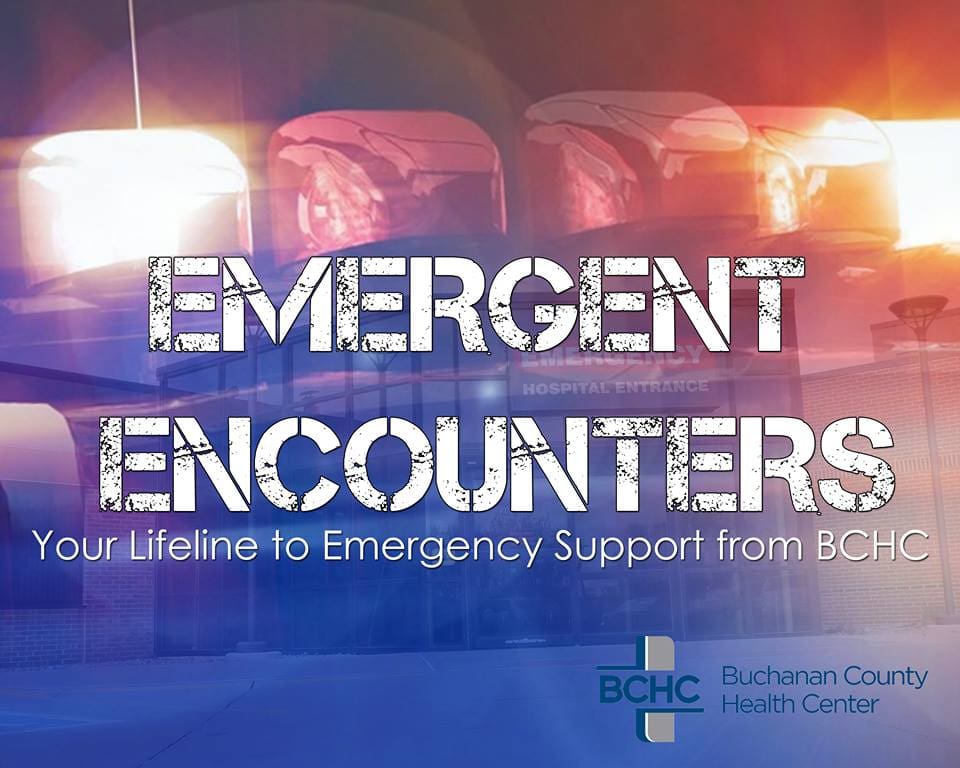
Emergent Encounters: Your Lifeline to Emergency Support from BCHC
As we head into fall our children are going back to school and joining fall sports such as football, cross country, volleyball, and cheerleading. Although fun and rewarding to participate in and watch, contact sports can increase the incidence of sport injuries and concussions.
Although just a common now as it was years ago, an injury resulting in a concussion or Traumatic Brain Injury (TBI) is now easier to diagnose and treat because of increased awareness that coaches, the media, and medical professionals have placed on the importance of education and prevention. Yearly, about 2.5 million emergency room visits and hospitalizations are related to TBI.
A TBI is caused not only by hitting the head, but any jolt or penetration that damages the normal function of the brain. There is a wide range of severity in TBI including a mild headache to prolonged coma. Luckily, most TBI’s are mild and typically called and diagnosed as a concussion
As we head into fall our children are going back to school and joining fall sports such as football, cross country, volleyball, and cheerleading. Although fun and rewarding to participate in and watch, contact sports can increase the incidence of sport injuries and concussions.
Many have heard the term concussion. Most of us have a varying understanding of what that means. A concussion may not result from an obvious blunt force to the head and often times symptoms overlap or mimic symptoms of other sports related conditions like dehydration. This means that the more athletes, coaches, athletic trainers, and parents can be aware of the symptoms of concussion, the more successful we will be in recognizing and treating the injury. Signs of concussion include headache, nausea, loss of consciousness, confusion, dizziness, and memory loss. Fortunately, most concussion symptoms resolve shortly after the time of injury. Unfortunately, some concussions result in prolonged symptoms that last days to weeks, or even years. It is important to recognize a concussion early and implement strategies to prevent these prolonged symptoms of a concussion. Those at risk for longer recovery are older adults, young children, teens, and those who have had a concussion in the past.
Along with education and awareness, there are ways to prevent concussions and to make them less damaging. One way is to wear properly fitted protective equipment, such as a helmet.
It is also important to recognize and record the signs of a concussion. Immediate symptoms may include the loss of consciousness, headache, blurry vision, nausea, vomiting, dizziness, light or noise sensitivity, balance problems, and/or tiredness. Long-term symptoms may include sleeping problems, irritability, sadness or anger, trouble in thinking clearly, decreased concentration, loss of memory, and/or anxiety.
When a concussion or head injury is suspected the affected person should be removed from the athletic event promptly and then evaluated and educated by a health care provider. Evaluation will include determination of the severity of injury which will guide proper treatment to maximize early recovery. Current evidence supports early recognition and cognitive and physical rest as the most effective means of healing and preventing long term symptoms of a concussion.
The Iowa High School Athletic Association and the Centers for Disease Control have excellent resources available to coaches, parents, and athletes about concussions. It is highly recommended that these sources of information be reviewed before each sports season. It is also Iowa law that the form “Heads Up: Concussion in High School Sports” is signed yearly. The information in these resources and on the form is pertinent for athletes of all ages and is highly recommended for review.
BCHC’s Emergency Department wishes you a great school year and successful athletic season! Should an emergency happen, our emergency department is here for you with board certified emergency medicine physicians, physician assistants, and nurse practitioners from East Central Iowa Acute Care.
East Central Iowa Acute Care is a group of 13 board-certified Emergency Physicians and 11 Allied Health Professionals based out of Cedar Rapids. Currently, ECIA physicians and employees provide care to patients at four hospitals in Eastern Iowa including UnityPoint St. Lukes, Buchanan County Health Center, Grundy County Memorial Hospital, and Jones Regional Medical Center. For more information, please call 319-332-0999 or visit www.bchealth.org.

